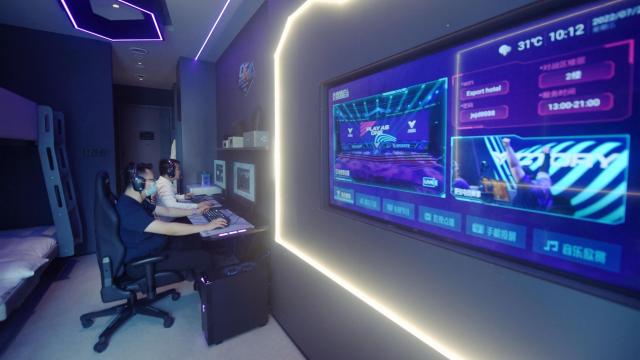“Solving” gaming addiction sounds as easy as easy as “solving” alcoholism, but China’s state-affiliated body overseeing video games seems about ready to call recent efforts at curbing gaming use among children a “success.”
The Financial Times and Reuters both reported that China’s state-aligned committee on video games released a report Tuesday that says the country has somehow “resolved” gaming addiction for minors. The country has had regulations in place since August, 2021 when it tried enforcing a gaming curfew for children that limited them to one hour of gaming on Fridays, Saturdays, and Sundays. At the time, the Beijing government called video games “spiritual opium.”
The report from the state-aligned China Game Publishers Association Publications Committee, or the GPC, noted that 75% of minors played less than three hours a week. The report also seems to indicate China may be willing to back down from tough regulations that have haunted the country’s game industry. China’s big game publishers were also given props for their efforts to suppress time spent gaming by minors, according to Reuters’ report. Tencent has used technology as invasive as face recognition to keep minors from late night gaming sessions.
The new report comes just a week after Chinese state media People’s Daily reportedly wrote an editorial called Deeply exploring the value of the electronic games industry is an opportunity we can’t miss. The piece reportedly framed gaming as another aspect of China’s approach on the world stage, writing that the European Union has given games “extremely high economic, technological, cultural and even strategic value,” essentially arguing China should do the same.
Those regulations put immediate pressure on major Chinese game publishers including Tencent and Netease to actively restrict accounts for minors to limited gaming sessions. And it wasn’t so easy as spoofing users’ login info to pretend they were over 18, as the government imposed rules that all users had to be verified with a real-life identity. The China Game Publishers Association tried to fight back against the outraged game industry by poetically making the point that games were not “fierce floods or savage beasts” and that the right kind of game could emphasise “positive energy” for video gamers.
That’s not to say ever-crafty children did not find loopholes in the system. Some young people were renting or even outright buying accounts so they could access their favourite games. Other reports noted young people could simply access the games using parents’ accounts. This does put the supposed 75% reduction of children’s game-time into question.
Still, in its latest quarterly earnings report Tencent said they were “fully compliant” with China’s regulations, which meant that time spent for young people online was down 92% year-over-year, according to Chief Strategy Officer James Mitchell in the company’s Nov. 16 earnings call.
The relaxed emphasis on child gaming addiction comes round the bend just as tech giants Sony and Microsoft are looking to do battle over incubating more Chinese-made games. Sony plans to invest over $US140,000 ($AU$210,600) into each game company that comes their way. Microsoft is also planning to build a team to scout more China-made games, according to anonymous sources cited by Reuters. The developers of the massively popular Genshin Impact, the China-based HoYoverse, was reportedly approached by Microsoft to turn it into an Xbox exclusive back in 2020, though they obviously did not reach a deal.

Leave a Reply